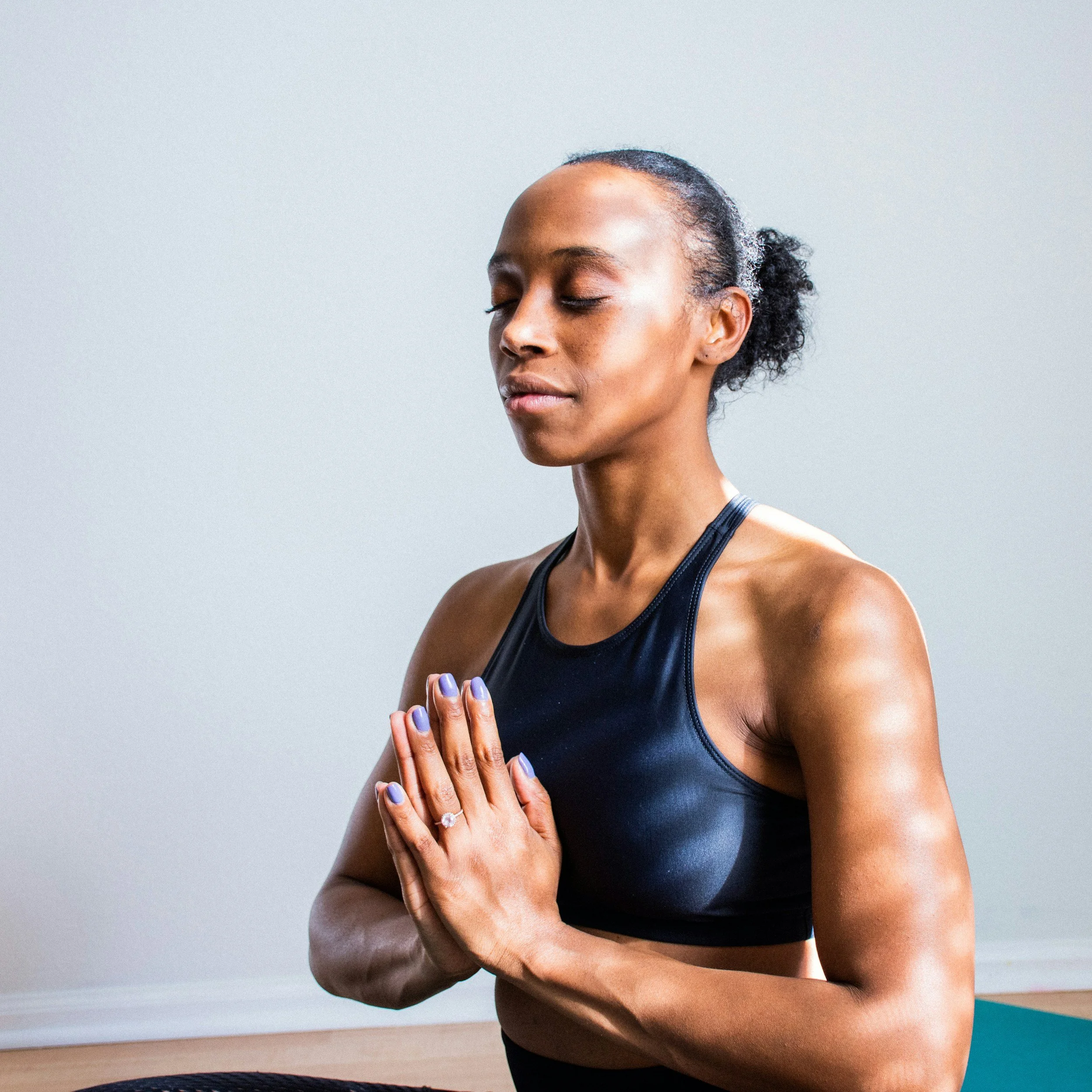Why You Can’t Hear Your Intuition (And How EMDR or Brainspotting Helps You Tune Back In)
Clearing unresolved emotional patterns creates space for intuition to function the way it’s meant to—quietly, steadily, and without urgency. EMDR and Brainspotting make this possible by helping your mind and body work together instead of competing for control. As past tension eases, you can discern what feels aligned, what feels off, and what genuinely supports your well-being. The more regulated your system becomes, the more naturally your intuition comes online.
What Happens When You Stop Talking About Your Trauma and Start Processing It Instead
You can understand your trauma, name your patterns, and still feel like your body reacts on its own. That’s because insight doesn’t automatically change the survival responses stored in your nervous system. EMDR and Brainspotting help process those deeper reactions so your body finally feels the safety your mind already knows. When the charge softens, real change stops feeling theoretical and starts becoming possible.
Your Nervous System Is Sabotaging Your Growth — Here’s How EMDR (and Brainspotting) Can Help You Reclaim It
Sometimes the part of you holding you back isn’t your mindset—it’s your nervous system reacting to old experiences. EMDR and Brainspotting work directly with the brain and body to loosen the stuck emotional patterns that keep your system on high alert. As the charge around old wounds softens, you gain more choice, more calm, and more ability to move toward the life you want. Healing becomes less about forcing change and more about reclaiming your internal safety.
This Therapy Technique Feels Like Energy Clearing for Your Subconscious
EMDR gently activates the brain’s natural processing system to clear out emotional patterns that talk therapy alone can’t always reach. As old stress responses complete and unprocessed memories lose their charge, many people notice more ease in their relationships, less reactivity, and a stronger sense of being grounded in their bodies. It’s a deeply effective way to heal when you’re tired of carrying invisible weight and want something that creates true, lasting internal shift.
The Silent Burnout Cycle Every Anxious Overachiever Is Stuck In
The silent burnout cycle runs on anxiety: push until exhaustion, crash when your body can’t keep up, and attempt a shallow recovery before repeating it all over again. It’s not a sign of weakness—it’s a nervous system pattern that never learned how to stand down. EMDR therapy helps reprocess the anxious beliefs fueling the cycle so your body can finally rest, reset, and move forward without collapse.
Why Your Nervous System Is Keeping You From the Life You Want (and How EMDR Can Fix It)
Your nervous system influences more than stress—it quietly shapes how you rest, pursue goals, and connect with others. When it’s stuck in survival mode, those automatic responses can hold you back even when you know what you want. EMDR therapy helps recalibrate the system by resolving unfinished responses, making it possible to experience calm, choice, and freedom where there used to be only reaction.
The #1 Reason High-Functioning Women Burn Out (and How EMDR Can Break the Cycle)
Burnout doesn’t happen because you’re weak or incapable—it happens when your nervous system has been stuck in survival mode for too long. For many high-functioning women, the drive to overperform and overgive comes from old patterns of stress or trauma that never got fully resolved. That’s why vacations, self-care, and new routines only provide temporary relief. EMDR therapy helps break the cycle by reprocessing those deeper patterns, calming the nervous system, and creating space for rest, balance, and freedom that actually lasts.
You Don’t Need ‘Big T Trauma’ to Try EMDR — Here’s What No One Tells You
EMDR isn’t just for people with “big, obvious trauma.” It’s a powerful therapy that helps your brain reprocess memories and release the weight of experiences that still shape how you feel, think, and react. Whether you’re navigating anxiety, ADHD-related shame, grief, or the quieter wounds of self-doubt, EMDR can create lasting change that talk therapy sometimes can’t reach. Healing isn’t about whether your story is “bad enough”—it’s about giving your nervous system the chance to feel safe again.
Am I Autistic or Just Sensitive? — The Overlap Between Autism and Trauma
If you’ve ever wondered, “Am I autistic, or am I just sensitive because of everything I’ve been through?” you’re not alone. Many women ask themselves this exact question—especially as awareness of autism broadens and more people recognize their own experiences in what they’re reading online. It makes sense that the lines feel blurry. Both autism and trauma can involve sensory sensitivity, social overwhelm, and emotional intensity.
Do I Have ADHD or Am I Just Anxious and Burnt Out?
In today’s world, where everyone is stressed, anxious, and running on fumes, it’s not easy to tell whether your struggles are “just” burnout, anxiety, or signs of ADHD. And for women especially, the overlap can feel confusing. The truth is, these experiences share a lot of the same symptoms—but the reasons behind them are different. And understanding what’s really going on in your brain and body can change how you approach healing.
Getting Diagnosed with ADHD as an Adult: Is It Worth It?
If you’ve ever found yourself wondering why life always feels harder for you than it seems to for everyone else—why deadlines slip by, your brain feels like a browser with 50 tabs open, or small rejections leave you spiraling—you may have also wondered: Could it be ADHD? For many adults, especially women, this question doesn’t surface until much later in life. By the time it does, you might find yourself weighing the costs and wondering: Is it even worth getting a diagnosis now?
The Link Between People-Pleasing and Rejection Sensitivity in Neurodivergent Women
If you’ve ever replayed a text in your head a hundred times, said “yes” when you desperately wanted to say “no,” or felt your whole body sink at even the slightest criticism—you’re not alone. For so many neurodivergent women, rejection sensitivity and people-pleasing become two sides of the same coin. And it’s not because you’re weak or broken. It’s because your nervous system has learned, over years of experiences, that rejection feels unsafe—and one way to protect yourself is to keep everyone else happy.
Therapy for Neurodivergent Women: What Makes It Different—and Why It Matters
If you're a woman who’s always felt a little “off-script”—like the world is playing a game with rules you didn’t get—you’re not alone. Maybe you’ve spent years pushing through exhaustion, overanalyzing every social interaction, or wondering why things that seem “easy” for others feel so hard for you. And maybe, at some point, someone (maybe even you) started to wonder: could I be neurodivergent?
Do I Have ADHD or Am I Just Burnt Out?
You used to be able to hold it all together. You managed the calendar, the tasks, the text replies. You were the reliable one. But now? You’re overwhelmed all the time. You can’t focus. You start things and forget what you were even doing halfway through. You’re exhausted—but you also feel like you’ve lost parts of yourself you used to recognize. And the question that keeps echoing in your head is: Am I just burnt out… or is this something else?
Why ADHD/AuDHD in Women Often Gets Missed Until Adulthood
ADHD and autism are still widely underdiagnosed in girls and women—largely because the diagnostic framework was built around how these traits show up in boys. It’s easier to notice the child who’s climbing on desks than the one who’s quietly zoning out, masking confusion with a polite smile. We’re taught from an early age to adapt, accommodate, and not take up too much space. So when something feels hard, we don’t express it—we internalize it. We assume it’s our fault. We try harder. We mask better.
“I Thought I Was Just Sensitive”: The Overlap Between Trauma and Neurodivergence
Have you ever been told you’re “too sensitive”? Maybe you’ve struggled to hold it together in social situations, felt totally overwhelmed by everyday demands, or needed more downtime than your friends. You may have spent years believing that something was wrong with you—without realizing that what you were experiencing could be signs of trauma, neurodivergence, or both.
Anxious All the Time? How Trauma Keeps You Stuck in Survival Mode
You finally have a moment to rest—but your mind races. Your shoulders are tense, your jaw is tight, and even when nothing’s going wrong, it still doesn’t feel safe to let your guard down. If this sounds familiar, you're not alone—and you're not broken. For many women I work with, persistent anxiety isn’t just about stress. It’s the result of a nervous system stuck in survival mode, long after the original danger has passed.
Why Unhealed Trauma Can Make ADHD Feel So Much Worse
ADHD is already a full-time job. But when you add unresolved trauma into the mix? That job becomes nearly impossible to manage. Maybe you’ve always struggled with time management, emotional outbursts, or remembering simple things. Maybe you’ve spent years trying every planner, productivity hack, or habit tracker—only to feel like you’re still falling short.
When ADHD Hurts More Than Just You: How Relationship Trauma Happens—and How Therapy Can Help
You’re smart, caring, and deeply devoted to the people you love. And yet—your relationships often feel like a minefield. You forget a friend’s birthday. You interrupt your partner mid-sentence. You get overwhelmed during a serious conversation and shut down. You didn’t mean to hurt anyone, but somehow you keep doing it—and the guilt eats at you. This is a painful and all-too-common reality for women with ADHD.
“She Just Gets It”: Why So Many Women Prefer a Female Therapist
You go to therapy to feel seen, heard, and understood. But sometimes, it feels like you’re working just as hard to explain why you’re struggling as you are to get support. Instead of focusing on healing, you’re translating your pain, second-guessing your emotions, or wondering if your therapist really gets it. That’s one of the biggest reasons women seek out female therapists. There’s less to explain. Less to hold back. And more space to just be—messy, emotional, burned out, or uncertain—without having to justify it.




















